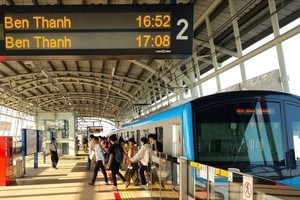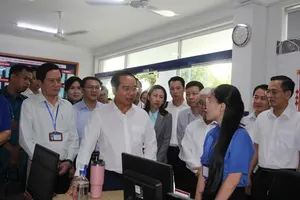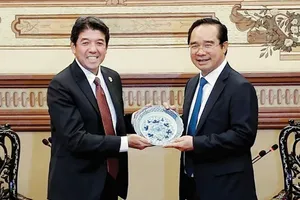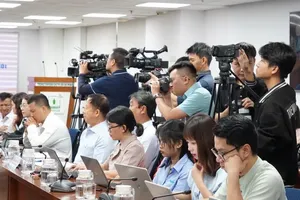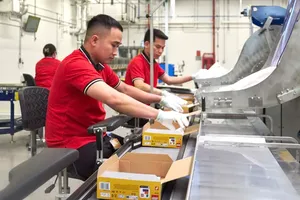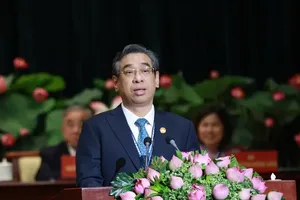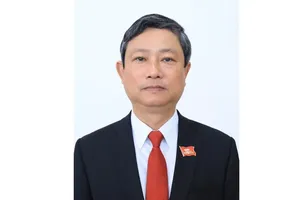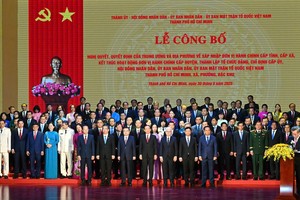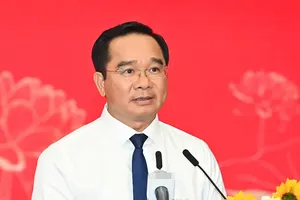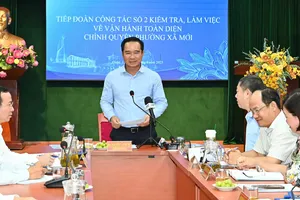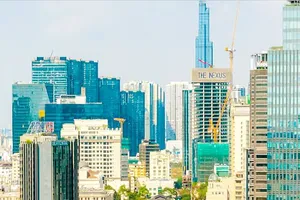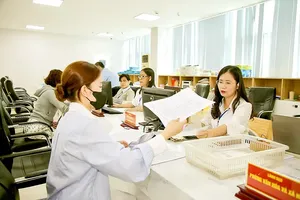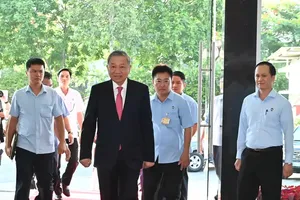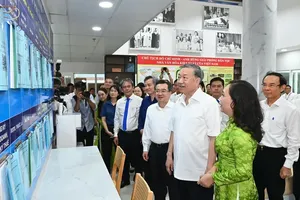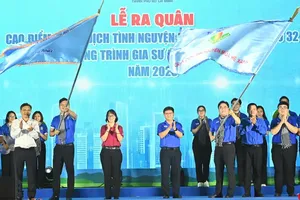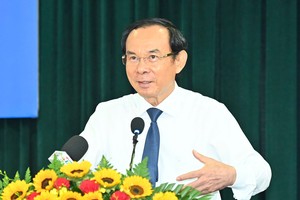As part of our ongoing efforts to contain drug related crimes, the City will continue to strive to reduce the number of people involved in illegal use of drugs, said Le Hoang Quan, chairman of Ho Chi Minh City, at a conference on ‘National Strategy for Prevention and Drug Control by 2020’.
The conference was launched yesterday, August 13, by the City People's Committee, to introduce a plan to fight illegal drug use by 2020 with a vision for 2030.
Work on fighting drug related crimes will continue to see police busting drug dens and traffickers of hard drugs such as heroin.
According to a City Police report, 1,600 drug traffickers and 6.5kg of heroin and more than 27kg of ecstasy were seized during the first six months of the year.
Foreign traffickers recruited Vietnamese women to transport large amounts of ecstasy by plane from Africa, Afghanistan and the Golden Triangle into Vietnam and vice versa to other countries. Local police have also discovered ecstasy being produced in the City area.

HCMC police officers face a tough battle as some criminals involved in the production and transport of illegal drugs use sophisticated weapons to resist police.
City leaders also outlined plans for carrying out anti-prostitution raids and campaigns during the period 2012-2015.
Authorities face a tough task as the number of heroin users in the city is rising and this trend is leading to increase in cases of HIV/AIDS.
HIV/AIDS infections are rising as the number of people using heroin has increased by 7.7 per cent during the first six months of the year, according to the Ministry of Public Security.
Conference participants also heard that HCMC recorded 49.3 per cent more heroin addicts during the first six months of the year than compared to the same period last year.
Treatment offered by public rehabilitation centers is seen as an effective way for heroin addicts to free themselves of the drug. Attending the centers, addicts also receive vocational training as well as knowledge on culture and improved lifestyle.
However, according to ministry sources, heroin addicts remain hesitant to come to the centers. Some people even want to escape from the centers because of harsh programs and sometimes unfriendly relations between staff and addicts.
According to Do Thi Ninh Xuan, deputy head of the Department for Fighting Social Crimes, the Labour and Education Center in Long An Province was among the top centers that tailored its training programs according to learners' needs. As a result, 95 percent of the center members undertook training programs, including classes on welding techniques and motor repair. Two thirds of them received certificates of distinction.
Meanwhile in HCMC, district and ward authorities are encouraged to team-up with rehabilitation centers so that drug users can receive help from local authorities to integrate back into the community after being rehabilitated.
Chairman Le Hoang Quan urged the health and public security sectors to play important roles in building community-based rehabilitation centers. He also called on police to seriously fight drug sales otherwise authorities efforts would become meaningless.
Mr. Quan added that the City planned to diversify rehabilitation models. Some public and private centers, therefore, would be selected to become service centers, while new community-based centers will also be built.
The HCMC Mayor said the police should be in charge of managing these trainees, with the local heath sector taking care of the addicts' health and the social welfare sector in charge of vocational training and jobs creation.
He stated that HCMC authorities also aim to reduce the rate of relapse among former drug addicts from the current rate of 17 percent to 10-15 percent.
Sharing the view, Nguyen Van Minh, deputy head of HCMC Labor, Invalids and Social Affairs Department, said that local authorities play a crucial role in preventing former addicts relapsing into drug use.
He also suggested the centers plant trees and create fish ponds in the center complexes. In addition, he suggested centers regularly hold entertainment activities, sports and artistic performances to make trainees feel more at home.
Nonetheless, the idea to build rehabilitation centers at wards and communes encountered difficulties since few wards and communes have funds for these. In addition, few doctors are willing to work at commune centers.
On this occasion, representatives in 24 Districts throughout HCMC signed emulation reports strengthening drug prevention and anti-prostitution with City leaders.
HCMC People's Committee also awarded certificates of merit to 15 groups and 11 individuals who had contributed much in the prevention of social evils.
